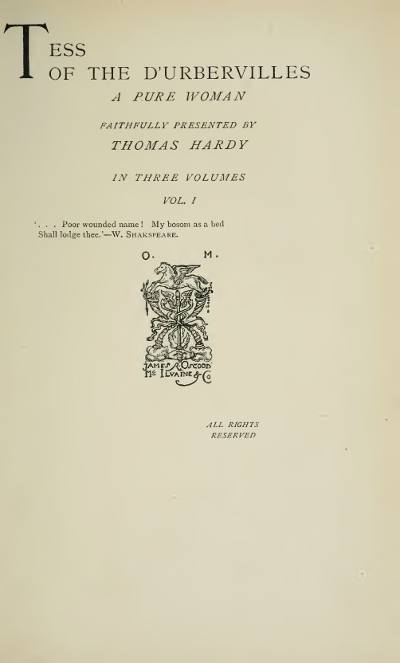Articles
- The world of Victorian writers 1837 - 1901
- Victorian writers
- Making sense of the tangible world
- Making sense of the intangible world
Determinism and free will
What is determinism?
Determinism is a philosophical concept. It means that the course of each human life is predetermined. Forces which predetermine in this way could be:
- God or a supreme being (as in some religious beliefs)
- Fate or destiny: impersonal forces
- History (as in Marxism)
- An individual's genes.
Usually, when the belief is found in religion, it is called predestination. St Augustine in the fourth century and John Calvin, a Swiss Protestant reformer, both held this view.
It must be understood that fate and destiny are the opposite of chance or luck, which suggest haphazard, unplanned events affecting our lives.
What is free will?
A modern understanding of free will is that human beings are able to make choices freely; that they can plot their own lives and are thus totally responsible for those choices. Earlier traditions would see it in the light of humankind having been destined for perfection but now being subject to the consequences of original sin, environmental forces and the factor of Providence.
In Christian thinking, the theologian Armenius in the seventeenth century put this latter view forward. His theology is often called Arminianism. However, prior to that, the reformer Martin Luther had written a book On the Bondage of the Will, suggesting that since the Fall, man's will was bent towards making bad choices and therefore it was much more difficult to choose to do good.
Examples in literature
In literature, the conflict between determinism and free will has been portrayed from Greek tragedy to the novels of George Eliot and Thomas Hardy and beyond. In a special sense, of course, any fictional character's actions are determined by the author.
In the Greek tragedian Sophocles' Oedipus' Rex, whose fate is foretold by a prophecy from the Delphic oracle. Oedipus tries everything he knows to avoid fulfilling the prophecy, but ironically, everything he does only helps to fulfil it. He finds that, as the prophecy predicted, he has killed his own father and married his own mother.
The irony of fate
 The English novelist Thomas Hardy often uses this same sort of irony. In Tess of the d'Urbervilles, for example, Tess is undecided whether to tell her fiancé, Angel, of her past. She decides to write a letter, delivers it, but unbeknown to her, the letter slips under a carpet and is never found. We are left to decide whether:
The English novelist Thomas Hardy often uses this same sort of irony. In Tess of the d'Urbervilles, for example, Tess is undecided whether to tell her fiancé, Angel, of her past. She decides to write a letter, delivers it, but unbeknown to her, the letter slips under a carpet and is never found. We are left to decide whether:
- It is an unlucky accident
- Some sort of malevolent Fate
- A moral failure on her part not to tell Angel face to face.
A moral force
In the novels of another Victorian writer, George Eliot, there is a more obvious moral pattern. For example, in Middlemarch, the religious hypocrite Bulstrode finds that however much he tries to hide his past, an apparent series of coincidences actually reveal it. His actions help to achieve the opposite of what he wishes. But here, unlike with Tess or Oedipus, we feel fate, or destiny, is a moral force.
Destiny or plot requirement?
Any novelist or dramatist has to use coincidences to make a plot work. The point is that if coincidences are patterned or weighted one way or the other, the audience no longer sees them as coincidences but some systematic force of destiny. The writer then needs to provide some sort of interpretation for this force beyond that of the needs of his own plot manipulation.
